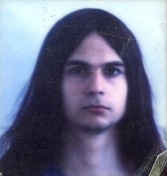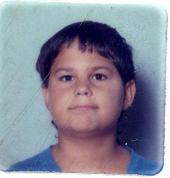Filesharing is paving the streets of a totally new cultural landscape. Just as the internet has made it possible for new social groups to flourish like never before, the ongoing revolution in music is doing the same for styles.
In cities, we use all sorts of symbols to identify (label) ourselves and associate with groups (class, urban tribe, counterculture, tastes). The symbols characterizing each style are far from simple, and no single symbol identifies a single style. Each style has a unique complex paradigm– a Weltanschauung– that governs the choice of symbols. And that world view has implications for every aspect of life. It’s no accident that emo, punk, goth, and other styles are simultaneously styles of dress, attitude, and music.
The language of style is music. Music puts emotion and expression– both universally shared meaningsand layered insider meanings– to the abstract symbols. With pervasive mp3 players, music provides a soundtrack to the lives of people who share a style. And music packages the abstract paradigms, and gives them the stickiness and motive power that memes need to grow.
In High Fidelity, Rob says, “What really matters is what you like, not what you are like.” “What you like” are the road signs to the paradigms that govern your life. What’s possible is largely what’s borrowed.
Since the advent of filesharing, what can be borrowed has multiplied a zillion-fold. If Reebee Garofalo’s genealogy of rocky music went 30 years further, I think it would have to list an order of magnitude more bands to represent the musical landscape listeners are exposed to today. Wikipedia lists 130 Goth bands, 618 punk bands, 940 “alternative” bands, and as a rule, those are just the ones that have achieved international fame. And each wave of music spreads the fragmentation further.
Of course, the differences between regional cultures a century ago dwarf that between preps and punks. The entirety of the contemporary western stylist world is built on post-modernism. Mass production, corporate media, and capitalism have done irreparable damage to the world’s cultural diversity.
But the landscape we’re exploring now is very exciting. Because of music, one culture can support so much more diversity. With the internet, we can be aware of so many more options. And above all, we can choose our styles like never before. Moreover, one person can support a greater diversity of styles. Most people are not goth, or punk, or emo– but they may emote goth, punk, or emo persona in different contexts.
And I don’t see a limit any time soon. Our capacity to accept and juggle and share diversity hasn’t started to be exhausted. I saw Planet Earth: The Jungle the other day, where 40 species of monkeys share the same fig tree. In the not-so-far fictional future of Transmetropolitan, subcultures too numerous to encyclopedize mix and clash constantly. That’s where we’re headed, and we’ll all be dancing there to a different tune.

